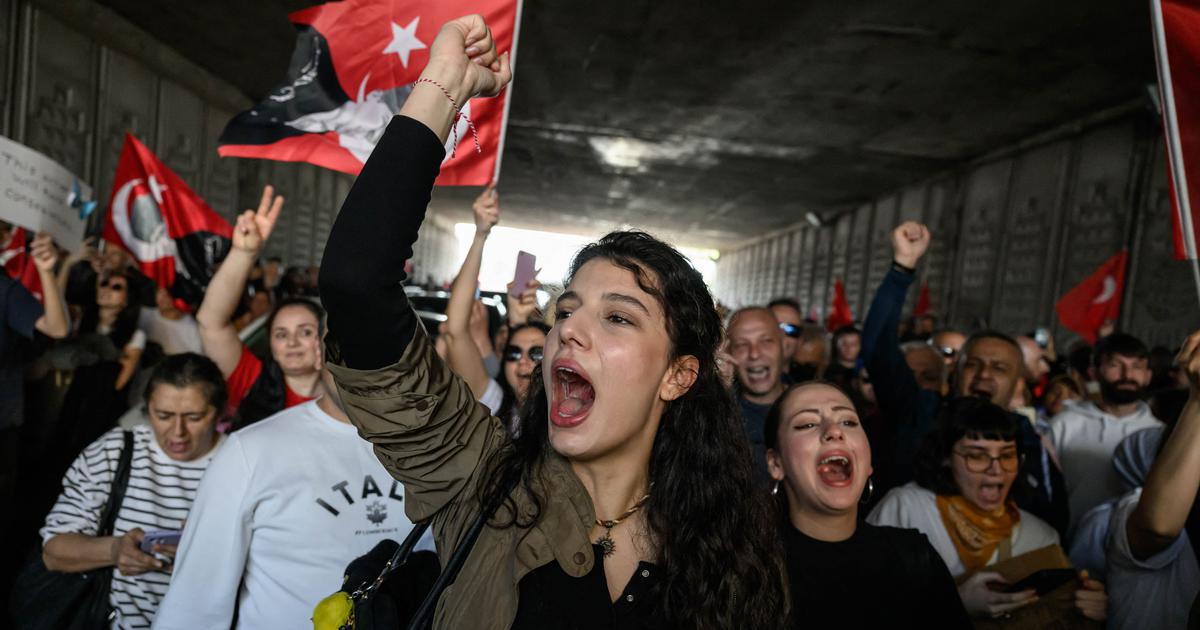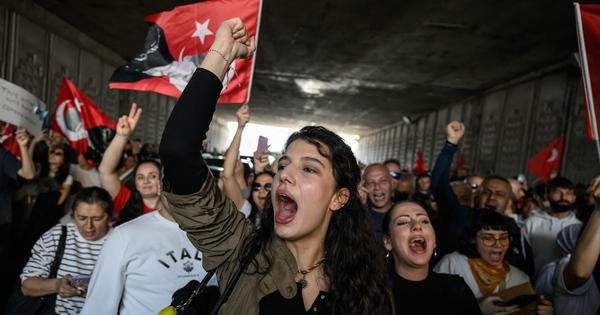Turkey’s Democracy Crisis: Religion, Power, and Repression Intertwined
Istanbul’s Mayor Arrested: Turkey’s Democratic Pillars Shaken

The detainment of Istanbul’s mayor, Ekrem İmamoğlu, on March 19 has sparked concerns about Turkey’s democratic state. This incident might signify a turning point in the gradual dismantling of the nation’s secular and democratic foundations.
Established in 1923, the Republic of Turkey was founded as a secular state under Mustafa Kemal Atatürk’s leadership. Secularism was deemed essential for modern development, as it separated religious authorities from state power structures.
Secularism’s Erosion
However, recent studies indicate that this separation has weakened since the Justice and Development Party (AKP) took power in 2002. Turkish politics researcher Jenny White observes that under the AKP, Islam has transitioned from a private matter to a political legitimacy tool.
In her 2014 book, Muslim Nationalism and the New Turks, White delves into how the AKP has advanced a national-religious identity as an alternative to traditional republican secularism.
National Identity Redefined
This secularism transformation in Turkey has also been accompanied by a national identity overhaul. According to a Brookings Institution study, Erdoğan’s government has promoted a religious and conservative vision of Turkish identity. This has undermined the republican pillars the country was built upon over a century ago.
Instead of occupying a private or spiritual space, Islam has been increasingly integrated into the official state narrative as a political cohesion and moral legitimacy tool. This redefinition has had clear consequences: reduced dissent scope, curtailed individual freedoms, and the spread of a cultural, religious identity that excludes significant parts of society.
Competitive Authoritarianism
A Regime with Weakened Democratic Institutions
Authors Steven Levitsky and Lucan Way coined the term “competitive authoritarianism” to describe a regime with formally existing democratic institutions that are weakened by government control. In Turkey’s case, various practices contributing to unfair electoral competition have been documented, including judiciary co-opting, media control, and opposition candidate disqualification.
İmamoğlu’s Arrest and Its Consequences
İmamoğlu’s arrest on corruption charges and alleged terrorism links fits this pattern. After winning the 2019 and 2024 Istanbul mayoral elections, he emerged as a viable challenger to AKP hegemony. International analysts interpret his arrest as an attempt to exclude him from national elections.
Justice System Weaponization
Judicial Proceedings Used to Exclude Political Opposition
Turkey has seen repeated judicial proceedings used to exclude political opposition in recent years. According to Freedom House’s 2024 report, Turkey is classified as “not free”, with declining scores on judicial independence and civil liberties. The detention of over a thousand people following İmamoğlu’s arrest, including journalists and protesters, has been criticized by organizations such as Human Rights Watch and Reporters Without Borders.
In this context, the law’s application is transformed into a control tool. Guillermo O’Donnell referred to this as “bureaucratic authoritarianism”: a selective legality use to maintain institutional forms while eliminating their democratic functions.
Democratic Decline and Institutional Capture
Turkish-born economist and Nobel laureate Daron Acemoglu has extensively argued that democratic decline is directly linked to weak institutions and lack of executive power checks. In his 2013 book, Why Nations Fail, he argues that inclusive institutions are key to development and stability, while those captured by extractive elites tend to result in authoritarian or inefficient regimes.
The current situation in Turkey – where control over the judiciary, the media, and the electoral system has been progressively centralized by the executive – illustrates the consequences of this institutional capture.
International Implications
Turkey serves as a case study for understanding the transformation of 21st-century democratic regimes. In their 2019 book, How Democracies Die, Steven Levitsky and Daniel Ziblatt warn that contemporary democracies are not usually brought down by coups d’état. Instead, they are dismantled by a progressive erosion of institutional checks and balances from within the system itself.
Events in Turkey demonstrate how leaders can weaken secularism, concentrate power, and criminalize the opposition within a political model that still retains a democratic façade. This “normalization” of a shift towards autocracy should serve as a warning to other vulnerable democracies.
Ekrem İmamoğlu’s arrest is a critical episode in the Turkish political system’s structural transformation. Viewed through the lenses of competitive authoritarianism, democratic regression, and political secularism, it is evident that this is not an isolated repression episode. It signals a profound ideological drift, one that threatens the essence of the modern Turkish republic founded more than a century ago.
Deniz Torcu is Adjunct Professor of Globalization, Business and Media, IE University.
This article was first published on The Conversation.



